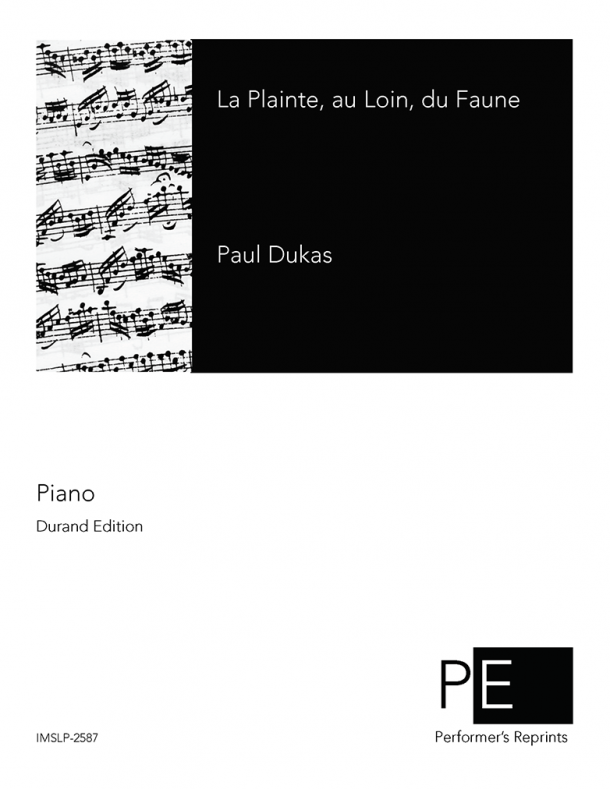Obscure Music Monday: Dukas' La plainte, au loin, du faune
Paul Abraham Dukas (Oct. 1, 1865 - May 17, 1935) was a French composer, professor, and critic, born in to a Jewish family. The second of three children, Dukas didn't show any extraordinary musical talent, despite taking piano from a young age, until his teenage years, when he started to compose while recovering from an illness. When he was 16 years old, he entered the Paris Conservatory, studying piano with George Mathias, harmony with Théodore Dubois, and composition with Ernest Guiraud. While he was there, he won several prizes, including second place for the coveted award Prix De Rome. He was upset he didn't win the top prize however, and left the university in 1889. After compulsory military service, he devoted himself to composing and has a career as a critic as well. He later on became Professor of Composition at the Paris Conservatory and also taught at the École Normale de Musique.
La plainte, au loin, du faune, which translates to "The distant lament of a faun" was written in 1920 as a part of Le Tombeau de Claude Debussy, a collective of works by various composers, dedicated to the memory of Claude Debussy, who'd died two years prior. Dukas was a student with and friend to Debussy, and no doubt was deeply upset by his passing. Written for solo piano, it opens with a pulsing note, and that plays throughout most the work, like a reminder of the terrible finality of death. This hauntingly chromatic work quotes Debussy's Prélude à L'après-midi d'un faune, filling those figures with deep anguish. This piece has no resolution, and no satisfying ending. It just trails off, leaving the listener with an idea of how Debussy's death affected his friends and loved ones.
Here are some recordings of this work that might interest you:


